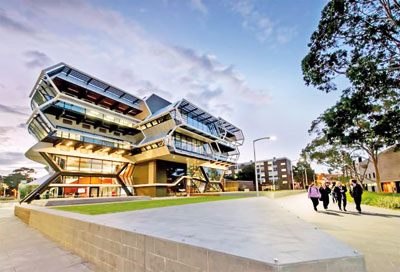Australian thinktank calls for system overhaul
View(s):
Australia’s post-compulsory education system needs an overhaul, with teaching and research funding separated and overseen by a new statutory agency, a Melbourne thinktank argues.
The Monash Commission also wants every Australian to have a “lifetime learning account”, with income-contingent loans available for all levels of courses at any approved college or university.
The recommendations mark the first assignment of the commission, a brains trust of education and industry heavyweights established last year to tackle some of Australia’s burning issues. It says fundamental reform is needed to grapple with a global problem of “how to produce the broad and continually evolving skills needed to maintain a healthy and prosperous society”.
Its proposals share hallmarks with ideas from a slew of inquiries, from the 2008 Bradley Review of Higher Education to last year’s reports by consultancies KPMG and Nous Group. But they could struggle to win political support.
This month’s federal election pits the governing Liberal-led coalition, which has spent the past few years trying to cut higher education funding, against a Labor opposition that has referred all reform details to major reviews of research and post-school education.
The Monash Commission report says that Australia faces an educational challenge, with just 56 per cent of adults currently possessing post-school qualifications while 90 per cent of new jobs are expected to require them. This equation does not take account of a looming demographic challenge, with the “dependency ratio” – the number of non-workers compared with the size of the workforce – exacerbated by an ageing population.
Current tertiary education settings are not adequate to address the economic, technical, cultural and environmental transformations sweeping the planet, the report argues. “Our public debates will need to become better informed, with more light and less heat, more knowledge and less opinion, more science and less surmise,” it says.
Like previous inquiries, the Monash Commission recommends more integration between higher and vocational education. It also prescribes the elimination of jurisdictional boundaries that have plagued previous reforms as different levels of government shifted costs to each other.
The new statutory agency would be the “single funding authority”, empowered by a “formal letter of expectation” to distribute state, territory and federal money. This would include a “global budget allocation” negotiated by state and federal governments.
The agency would also be a referee of tertiary education spending, ensuring that public research funding “pays for research and education funding pays for education and related services”. Research grants would cover the full costs of research, including “time-fraction linked investigator salaries”, utility costs and infrastructure “including depreciation”.
The new agency would also develop sectoral “strategic development plans” which noted national needs while respecting institutional autonomy. An “innovation fund” would foster “continuous renewal” in tertiary education and training, encouraging new providers while helping incumbents “refocus their missions”.
The lifetime learning account would be tracked using unique student identification numbers that tallied micro-credentials as well as full qualifications, the report says.
It warns that timely action is essential. “Calls for change in Australia’s post-compulsory education system are getting louder,” it concludes


